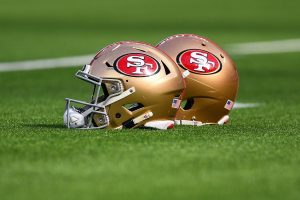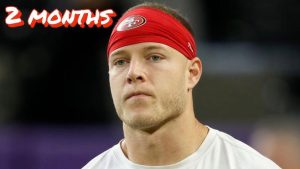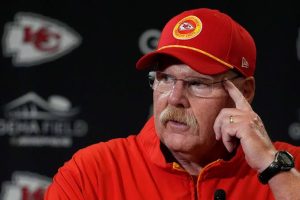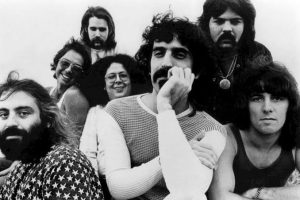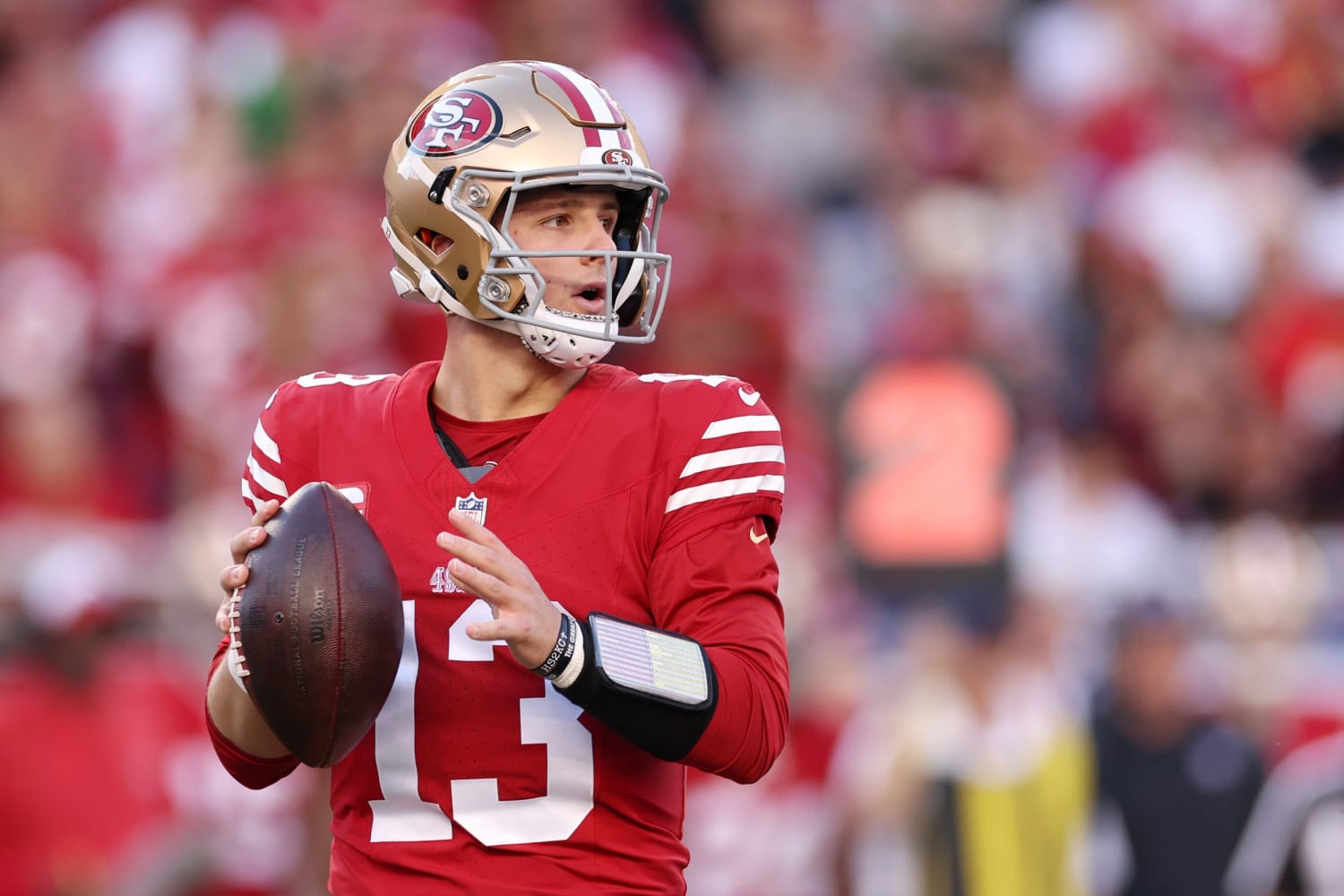
ESPN REPORT SAD NEWS: The San Francisco 49ers Trade 2 Mega-Star And Replace The QBBrock Purdy
Before the 49ers released veteran defensive tackle Arik Armstead on Wednesday, the they tried to trade him to the Texans for Maliek Collins but the deal fell apart after Houston agreed to terms with free-agent edge rusher Danielle Hunter, The Athletic’s Matt Barrows reported, citing a source briefed on the situation.
In the end, the 49ers agreed to send a 2024 seventh-round draft pick to the Texans for Collins, a source confirmed to NBC Sports Bay Area’s Matt Maiocco. A few hours later, San Francisco released Armstead, allowing him to hit the free-agent market.
Armstead’s release comes with a post-June 1 designation, a source told Maiocco, creating more than $18 million in salary-cap space for the 49ers.
Per Maiocco, the 49ers have opted to spread Armstead’s “dead money” over the next two years, so he still will count for $10.31 million on the salary cap this year and $15.55 million next year.
Collins comes to the 49ers with an $8 million base salary in 2024 and a $9.5 million base salary in 2025.
Armstead, a 49ers captain for the last four seasons, was a victim of San Francisco’s need to shed high-priced salaries in order to attempt to retain All-Pro wide receiver Brandon Aiyuk this year and quarterback Brock Purdy next year.
Samuel’s six facepalm emoticons speak for themselves, as the five-year veteran didn’t want to see the star defensive lineman go. The two were 49ers teammates for five NFL seasons in San Francisco, appearing in two Super Bowls and four NFC Championship Games.
Armstead was San Francisco’s longest-tenured player, spending nine years with the 49ers after they selected the Oregon product with the 17th pick in the 2015 NFL Draft.
The 30-year-old hits free agency as one of the top remaining defensive targets after declining a significant pay cut on his scheduled $17.41 million salary.
Armstead’s impact on the 49ers and Northern California will forever be appreciated, as he raised $2 million in donations for Sacramento and Bay Area youth through his Armstead Academic Project. He was a nominee for the Walter Payton NFL Man of the Year Award during the last four seasons.
Change is part of the game.
While Samuel eagerly switched his jersey number from 19 to one, missing Armstead is something he’ll reluctantly have to get used to.
After reportedly agreeing to terms with the 49ers, free-agent linebacker Eric Kendricks is expected to join the Dallas Cowboys, ESPN’s Adam Schefter reported on Wednesday.
As reality began to creep late last week that the Chicago Bears could quickly run out of obvious trade destinations for quarterback Justin Fields, a prominent NFL agent with experience facilitating trades for his clients offered a bottom line summary of the situation.
“I’d start looking for a [scheme] fit and a backup [quarterback] situation that isn’t pinned down,” the agent said. “Finding a fit is more important than just looking for a player he can beat out because the last thing you want to do is put a player onto a bad team. It can actually make things worse. So sometimes it’s not the obvious teams that make the most sense. … Look at Geno [Smith] and the quarterbacks he played behind all those years. That turned out to be a positive when he got his next chance as a starter.”
In the case of Fields and his next destination, the math is trending in that direction.
Gone are the days of grouping together franchises that have a need at the top of the QB depth chart and no simple resolution. Now the algorithm has moved into far trickier territory: Looking for teams outside of the NFC North that have a significant backup quarterback need, a scheme fit, some draft ammunition and preferably a front office willing to roll the dice on high upside opportunity. In this case, that’s quite a needle thread, particularly with Fields carrying only one year of contract control, due to a fifth-year rookie option that is unlikely to be triggered.
Right now, the Eagles are in the midst of trying to figure out a solution to their backup quarterback void, following the departure of Marcus Mariota to the Washington Commanders. Last year’s sixth-round draft pick Tanner McKee is on the roster, but he has no regular-season snaps. The Eagles have a starter in Jalen Hurts who is prone to taking punishment in games, and no experienced backup to hold the fort if Hurts goes down in the season. For a team that is still built to be in the postseason mix and only one season removed from a Super Bowl appearance, that qualifies as a significant risk. And at an early juncture of free agency, a great many backup quarterbacks have already been scooped up by other franchises.
Now enter Fields into that picture, with the Bears still looking for a trade partner and their potential compensation and leverage dwindling with each backup quarterback slot that gets filled across the league. As we wrote back in December, Fields’ true value according to a swath of general managers was going to be in the middle-round pick range, somewhere between third- and fourth-round compensation, possibly with some qualifiers added to a deal. Thanks to their compensatory pick allotment, the Eagles have one third-round pick, as well as three fifth-rounders. The compensation is certainly there to get a deal done.
When you factor in the penchant of Eagles general manager Howie Roseman to be involved in practically everything during the offseason — not to mention his ability to seize upside at a reasonable price — there is some traction to be had between the Bears and Eagles. Not just because Fields has starting experience that would be valuable in the event of an injury to Hurts, but also because he fits Philadelphia’s run-heavy RPO packages, which could take advantage of Fields’ strongest asset as a scrambler. He could also offer new Eagles offensive coordinator Kellen Moore the ability to design a few change of pace running snaps, taking some of the wear and tear off of Hurts.
For a one-year look, it makes a lot of sense. Even Fields’ salary is relatively cheap among quality backups, at just over $3.2 million in base money and a roster bonus that kicks in at the start of training camp. And all of this is built around the additional dimension of Fields still potentially being a trade asset prior to the 2024 deadline. Roseman is no stranger to being an active buyer at the deadline, but there’s a savvy sell that comes to mind: His September 2016 trade of Sam Bradford to the Minnesota Vikings for a first-round pick. That deal came together after the Vikings lost starter Teddy Bridgewater to a preseason practice injury, opening a lane for the Eagles to deal Bradford, who at the time was a bridge starter in front of then-rookie Carson Wentz.
While it’s unlikely that Fields could ever draw that kind of compensation in a similar scenario, there is no denying that he would have value if a competitive team lost a starter prior to the trade deadline. Possibly enough value for Roseman to deal him. And even if that opportunity didn’t materialize, the Eagles would simply carry Fields through the 2024 season, knowing they had an experienced starter behind Hurts who also fits into the strength of their offense.
